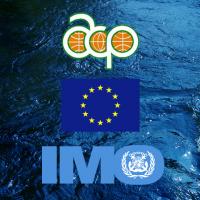
The European Union is funding a €1.2 million grant contract, signed between IMO and the African, Caribbean and Pacific Group of States (ACP) to support training and capacity-building activities aimed at enhancing flag State implementation and port State control in Western and Central Africa, with a view to upgrading the region’s maritime administrations and preparing its States for the mandatory IMO audit scheme.
IMO will be executing the two-year programme, identifying the individual countries’ needs in terms of enhancing their capacity to carry out their flag State responsibilities. There will also be a focus on port State control, such as training for ship inspectors, in order to support the functioning of the Memorandum of Understanding on Port State Control for West and Central African Region (Abuja MoU), which is an inter-governmental organization comprising the maritime administrations of countries abutting the Atlantic coast of Africa.
It is anticipated that the project will lead to the maritime Administrations being audited in accordance with the IMO Audit Scheme, which is expected to become mandatory in 2016 following the adoption and entry into force of amendments to the relevant IMO instruments. The focus of the capacity-building activities will be on compliance with the IMO Instruments Implementation Code (III Code), which provides the global standard to enable States to meet their obligations as flag, port and coastal States.
It is also expected that the projects will result in enhancing the effectiveness of the Abuja MoU on port State control.
The overall support programme for the maritime transport sector is intended to contribute towards Africa’s economic growth, connectivity and the promotion of regional integration, and will seek to complement other maritime transport programmes on the continent. Although it has a strong focus on Western and Central Africa, it may also be extended to other ACP regions..
The contract was signed on 10 March by IMO, the ACP Secretariat and the European Commission, with a start date for implementation on 15 March 2014. It reflects the joint EU-Africa Strategic Partnership adopted in Lisbon in December 2007, which calls for capacity-building in the fields of safety standards and regulations.
It is also in line with the African Union’s Maritime Charter and the 2050 Africa's Integrated Maritime Strategy (2050 AIM-Strategy) that was developed with the collaboration of IMO and formally adopted by the 22nd African Union Assembly of Heads of State and Government on 31 January 2014 in Addis Ababa, Ethiopia.
___
IMO – the International Maritime Organization – is the United Nations specialized agency with responsibility for the safety and security of shipping and the prevention of marine pollution by ships.
![[ad-side]](http://www.crewing24.com/ad_images/91_banner.png)
![[ad-side]](http://www.crewing24.com/ad_images/87_banner.png)
![[ad-side]](http://www.crewing24.com/ad_images/80_banner.jpg)
![[ad-side]](http://www.crewing24.com/ad_images/85_banner.jpg)
![[ad-side]](http://www.crewing24.com/ad_images/77_banner.gif)
![[ad-side]](http://www.crewing24.com/ad_images/106_banner.jpg)
![[ad-side]](http://www.crewing24.com/ad_images/88_banner.jpg)
![[ad-side]](http://www.crewing24.com/ad_images/79_banner.jpg)
![[ad-side]](http://www.crewing24.com/ad_images/86_banner.png)